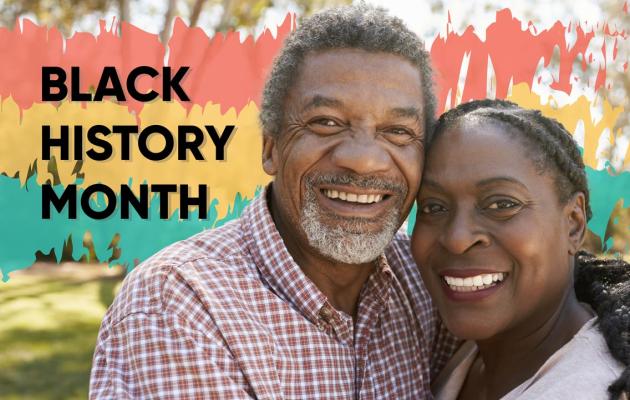Black History Month at WPCCU

We invite our members to join us in celebrating Black History Month! February 1, 2022 marks the start of a historic month, and we’re excited to spend it with you.
WPCCU believes in Diversity, Equity and Inclusion (DEI) for everyone. This month, we are spotlighting the legacy of those individuals who by their lives and for some, their deaths, made great strides in eradicating systemic racism. We know the battle is not over, and so we continue to shine the light.
Your credit union’s DEI committee will be organizing the celebration of Black History Month by collecting and sharing the heritage of our ancestors with photos, stories and even some great recipes. Join our celebration as we focus on ways to share the heritage and cultures of our employees and members.
Great Black History Month Destinations
We urge you to take a virtual tour of some of the venues listed below. We challenge you to create a personal goal for yourself, to honor Black History Month with us, as we share some great destinations and learn more about the history. Enjoy, and share some of the places that you may have already visited by commenting below.
- National Museum of African American History and Culture: The museum features more than 36,000 artifacts with collections on African American music, literature, photography and more.
-
Center for Civil and Human Rights: The National Center for Civil and Human Rights focuses on both permanent and temporary exhibitions that tell the history of the civil rights movement in the United States
- America's Black Holocaust Museum: Exhibits include a re-created slave ship and content devoted to slavery, civil rights, Black power and the complicated, often painful history of Black Americans.
- Museum of the African Diaspora: San Francisco’s Museum of the African Diaspora, or MoAD, is a contemporary art museum dedicated to Black culture.
- National Portrait Gallery: The Smithsonian's National Portrait Gallery houses many portraits of iconic African Americans, from a painting of Lena Horne to an antique photograph of Frederick Douglass.
- Charles H. Wright Museum of African American History: There are so many cultural and historic sites to see, but if you only have limited time in the city, head to the Charles H. Wright Museum of African American History. The museum has more than 35,000 artifacts including permanent collections about Harriet Tubman and the Underground Railroad.
- The US Civil Rights Trail: The trail connects more than 100 landmarks and historical sites, from the Martin Luther King Jr. Memorial in Washington, D.C., to the Edmund Pettus Bridge in Selma, Alabama.
- Museum of Pop Culture: The Museum of Pop Culture in Seattle features an exhibition devoted to hip hop. Also check out an exhibition centered on a man considered to be one of the greatest guitarists of all time, Jimi Hendrix.
- Negro Leagues Baseball Museum: America’s pastime has deep African American roots. Today, the Negro Leagues Baseball Museum in Kansas City, Missouri, preserves the history of Black baseball players from the late 1800s to the 1960s.
- Gullah/Geechee Cultural Heritage Corridor: To learn more about the heritage and history of the area, visit the Geechee Kunda Museum in Riceboro, Georgia, or book one of the ranger-led tours at Cumberland Island National Seashore to explore historic sites along the coast.
- Harriet Tubman Historical Park: Designated as a National Historical Park in 2017, Harriet Tubman National Historical Park in Auburn, New York, preserves several important sites associated with the Underground Railroad conductor.
- African Burial Ground National Monument: Located in Lower Manhattan, the African Burial Ground National Monument memorializes a site used as a burial ground for African slaves in the 1600s and 1700s.
- National Civil Rights Museum: The museum features the room where King spent his final hours after the assassination but also details the history of slavery and civil rights in the United States.
- Birmingham Civil Rights Institute: The Birmingham Civil Rights Institute, is an interpretive museum and research center in Alabama featuring permanent and traveling exhibits that chronicle the history of the American civil rights movement.
- The King Center: Visitors can pay their respects to Martin Luther King Jr. and his wife Coretta Scott King at the crypt at the King Center in Atlanta.
- National Memorial for Peace and Justice: The powerful memorial features an installation of more than 800 steel pieces that each represent a county in the US where racial lynching took place.
- The Legacy Museum: Just a few steps from the National Memorial for Peace and Justice, the new Legacy Museum provides a comprehensive history of the US with a focus on the legacy of slavery.
- Mitchelville Freedom Park: The site is on the National Register of Historic Places and serves to educate about the lives and quest for self-governance and autonomy of freed slaves in America.

Join the discussion